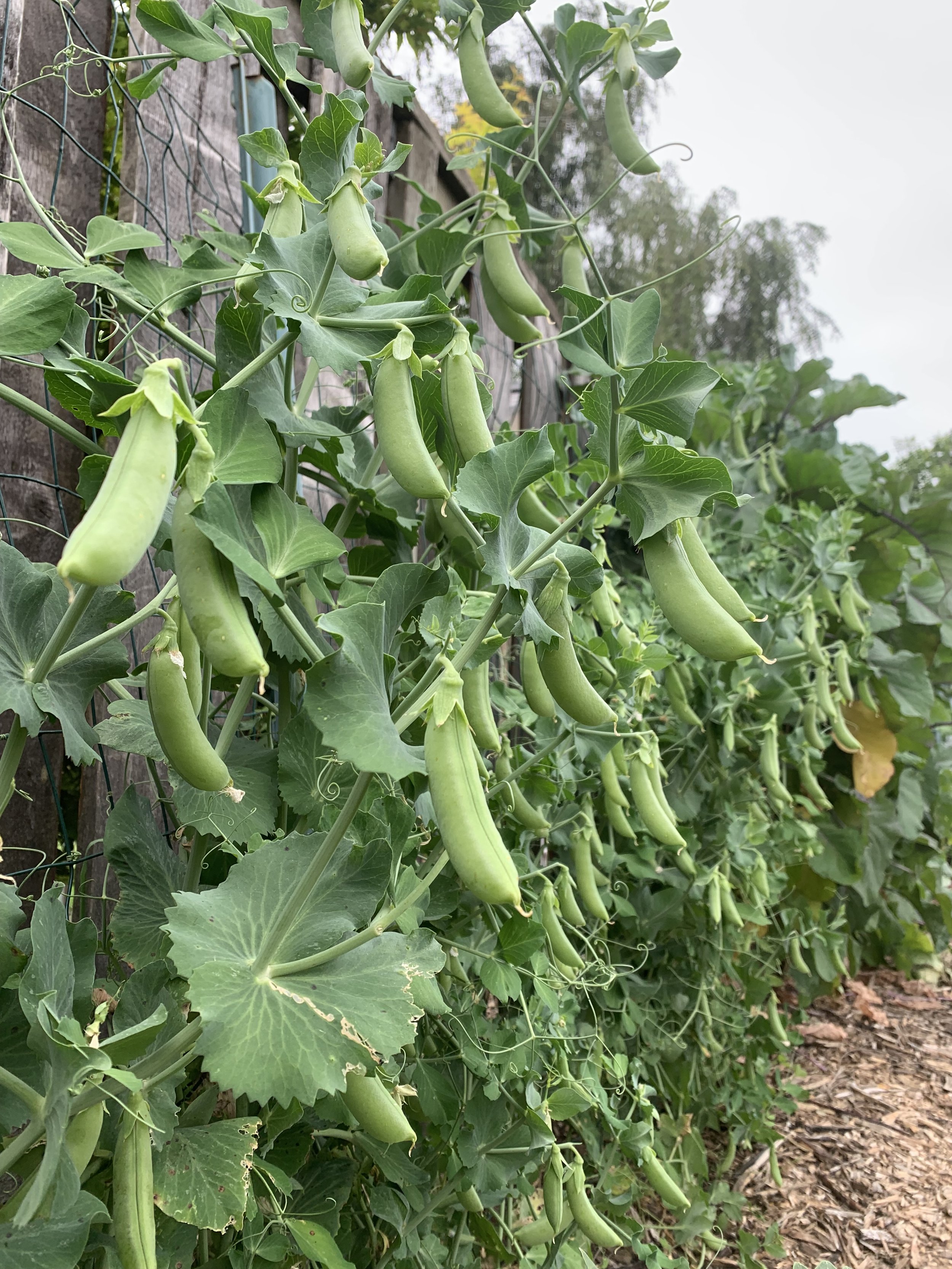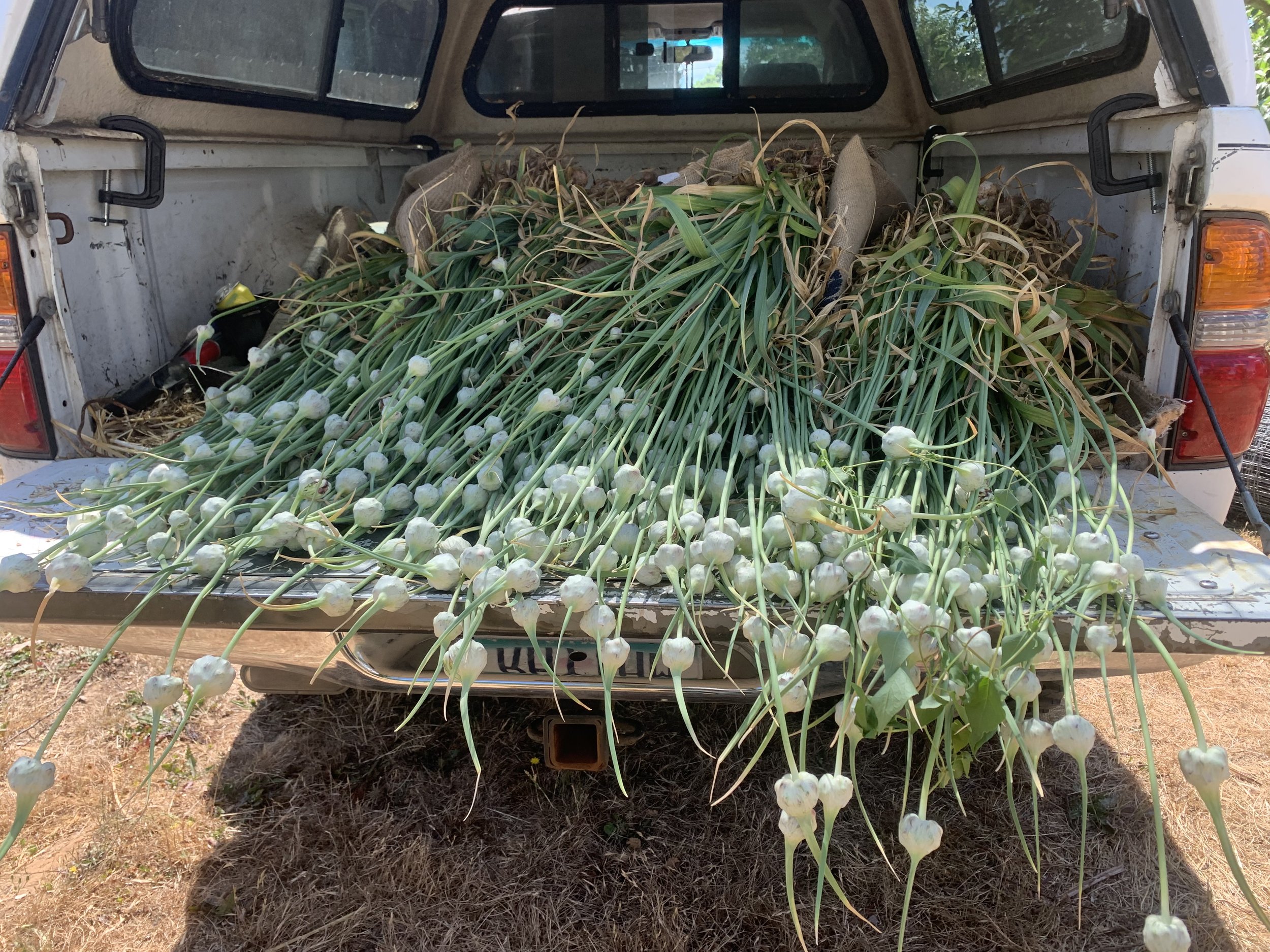EQUITY
Donating half of the seeds we produce is about more than charitable giving.
It is about justice.

Our seed donations are the cornerstone of RSF’s mission. We believe that growing food – and saving seeds to plant again next year – is one of the best ways to promote community-level, collective self-reliance. Thus we work to make free, organically-grown seeds available to all in need, and define “our community” broadly.
We donate to a diverse constellation of partners, including nonprofit organizations, BIPOC-owned agricultural enterprises, and individuals in need. Partnering with organizations that serve low-income community members like the Oregon Food Bank and Harvest Against Hunger – or donating seeds directly to low-income individuals – ensures that our efforts to increase food security start with the people in greatest need.
We also donate our seeds to a number of BIPOC-led small businesses working in agriculture. While communities of color still disproportionately suffer from food insecurity, among these partners are both nonprofit and for-profit organizations, and their members may or may not be low-income or food-insecure themselves. All of them, however, are doing important work transforming and strengthening our local food system. These organizations are building on a long and oft-forgotten history of alternative agricultural knowledge, crop breeding, and community organizing.
Explore below to learn more about food insecurity in the US today and the historical contributions made by communities of color on our long path towards food justice and seed sovereignty.
Food Security & Inequity
For BIPOC communities, navigating food insecurity is, unfortunately, nothing new. For at least as long as the USDA has been tracking food security at the federal level, Black, Latinx, and Native American communities have experienced food insecurity at double the rate of white Americans.
The past several years, however, have been marked by a plethora of challenges that have citizens and governments worldwide rethinking their relationship to food production. First, the early days of the COVID-19 pandemic highlighted the fragility of our reliance on extensive supply chains to keep food on our tables. More recently, rampant inflation has caused grocery store prices to rise 12.4% over the last year.
This has hit low-income Americans — disproportionately people of color – who already spend on average 36% of their income on food, incredibly hard. Many have been forced to swap healthy, fresh foods for shelf-stable, highly-processed alternatives. Record numbers of people have also turned to inflation-stressed food banks to fill their plates. Recent statistics report that nearly one in four US families with children experienced food insecurity in 2022, and nearly one in five Oregonians have visited a food bank in the last year — nearly doubling pre-pandemic levels.
Finally, while Russia’s war in Ukraine has impacted the cost of some commodity crops, there is another quiet culprit: climate change. From floods to droughts to hurricanes, US agricultural communities were hit hard by climate-fueled extreme weather in 2022. As the consequences of runaway climate change continue to expand and unfold, experts predict that food prices will continue to rise in the coming years. Working to enhance food equity and foster resilience in our food system has never been more urgent, or more important.

BIPOC Agricultural History
Despite owning only 2.7% of farmland in the US today, BIPOC farmers have long played a leadership role in breeding crops and creating innovative ways to increase food security in their communities.
Over millennia, Indigenous peoples in the Americas bred and stewarded many crops now grown worldwide, including corn, peppers, tomatoes, potatoes, sunflowers, cocoa, and peanuts (we recommend read Braiding Sweetgrass for an in-depth exploration on this). Upon the arrival of colonial powers, European settlers often mistook complex agroforestry systems for “wilderness” — a belief that has widely persisted until recent years.
Scholars are also increasingly recognizing the critical role that the agricultural knowledge of African slaves has played in shaping farming practices since the time of the Transatlantic slave trade. Oral histories of this time in Brazil and Suriname claim that it was enslaved women who first brought rice to the Americas. As the stories tell, West African women, fearful of capture by slave traders, weaving rice into their braids in the hopes that they would be able to cultivate it in the new world should they be taken against their will. In the American colonial south, African slave communities exchanged agricultural knowledge with local Indigenous Peoples. Combining West African and Indigenous knowledge, many slaves cultivated gardens to supplement meager rations provided by slaveowners.
TWENTIETH CENTURY LEADERSHIP
Pictured: Dolores Huerta
Following centuries of dispossession and persecution, the 20th century saw a revival of food-focused justice activism in BIPOC communities. In 1962, Dolores Huerta and Cesar Chavez cofounded the National Farm Workers Association (later merging with The Fillipino Agricultural Workers Organizing Committee to become United Farm Workers). Their boycotts, marches, and strikes gained national attention, and won workers better wages, conditions, and protection from pesticide exposure.
Pictured: Fannie Lou Hamer
Black leaders, meanwhile, were finding other ways to increase food security in their communities. Fanny Lou Hamer, for example, founded the Freedom Farm Cooperative in 1969, which housed 70 families and supported another 1,600 families with their produce. The Black Panther Party’s (BPP) free breakfast program fed more than 20,000 children across 36 cities in the United States, pressuring the government in 1975 to begin the free breakfast program on which many students rely today. It was also described by J. Edgar Hoover as, “potentially the greatest threat to efforts by authorities to neutralize the BPP and destroy what it stands for.” Make no mistake — oppressed communities feeding each other is a radical act.
Pictured: Winona LaDuke
In the 1970s, members of the American Indian Movement (AIM) formed Survival Schools, which provided students instruction in Indigenous languages, traditions and lifeways, including gathering wild foods and harvesting maple syrup. They served Indigenous students for three decades. In 1989, Anishinaabekwe (Ojibwe) leader Winona LaDuke founded the White Earth Land Recovery Project, which works to buy back reservation lands bought by non-Indigenous people for sustainable use, protect and collect native seeds, and enhance food sovereignty.
The last few years have shown us that top-down food security programs are ill-prepared for the tumultuous future of agriculture. Fortunately, BIPOC food justice and Indigenous food sovereignty movements continue to grow rapidly in the United States and beyond. Their leadership shows us that resilient food systems – ones that provide for all – are built from the ground up.

Our Supporting Role
At RSF, we believe the best time to overhaul our local food system was ten years ago. The second best time is now.
Fortunately, our partners are already doing phenomenal work improving food security across the Pacific Northwest and building sustainable solidarity in the process.
Short of redistributing huge tracts of agricultural land into their hands (which we would, were it within our power), by donating half of our locally-adapted seeds to marginalized farmers, we aim to give our partner organizations the best possible chance at a successful harvest. Since completing our first seed harvest in 2021, we have already donated over 3,000 seed packets to our partners.
But our work doesn’t stop the moment we drop off a package of seeds. We welcome all — partners, members, and curious newcomers — to our work parties. There, anyone can have the chance to get hands-on experience with some of our farming techniques under the guidance of our founders and expert growers Nick Canino and Alana Cornell. These water-smart, chemical-input-free methods dramatically reduce operational costs, which help our partners and members grow inflation-resistent, organic foods in their home gardens and on farms. We are also actively experimenting with new cultivation techniques, crop breeding projects, and working on improvements around the farm.
In 2023, we aim to expand our educational programming to help partners and members alike learn to save their own seeds — from plant selection and isolation to harvesting, winnowing, and winter storage — to enhance their self-reliance. We also plan to provide guidance on how to increase their resilience through crop diversification with some of the less common plants and seeds we provide.
We are extremely proud to support the work of our partners. Please, if you can, donate to our holiday fundraiser to help us sustain the link between seed diversity and our local food justice movements.




